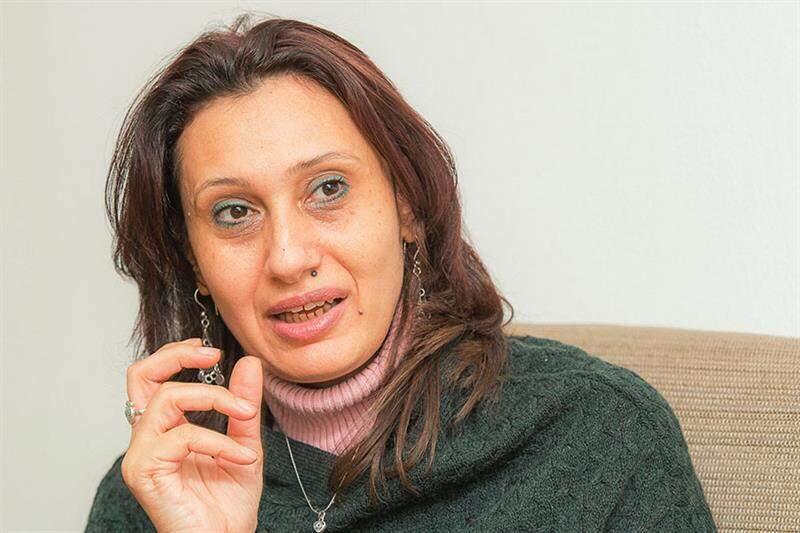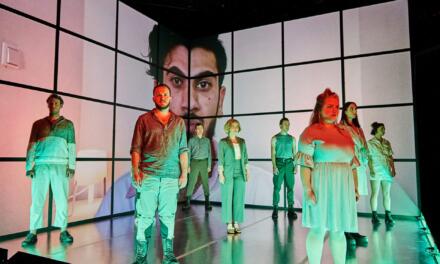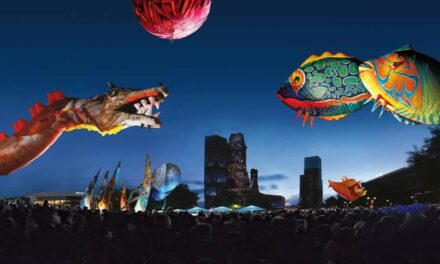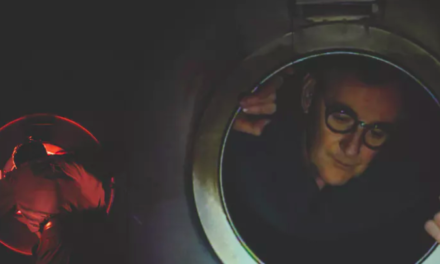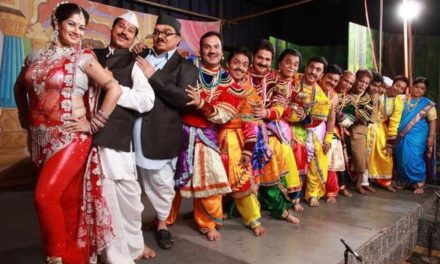Rasha Abd Elmonem — a playwright, independent theatre activist, and head of the training program at the Supreme Council of Culture (CSC) — shared her passion for theatre during the roundtable on independent and marginal theatre held at the Tahrir Cultural Centre on March 25th.
As a playwright and independent theatre activist, as well as head of the training program at the CSC, and co-director of the Eazees International Festival for Women’s Theatre, Abd Elmonem is a true defender of theatrical creativity in Egypt.
In her paper, which was presented during the roundtable, Abd Elmonem discussed the problems of support for independent theatre, the problems of production, and the spaces, alongside the frustration that young creators experience.
“Add to this the censorship,” she said. “We must not forget that there is a big gap between the different generations of theatre men in Egypt. There must be a means of communication between these generations.”
Abd Elmonem discovered her passion for theatre at the end of the 1990s.
“During my school years, I was drawn to literature and poetry. At home, I liked to write sketches to play them with my brothers and sisters without really understanding that they were dramatic scenes. My childhood was limited between home and school,” she elaborated during the round table.
Since a tender age, Abd Elmonem has often been occupied with the concepts of social justice and often tries to claim the rights of others.
She even wanted to join law school in order to become a lawyer, but her parents insisted that it was not a woman’s job.
“I also opted for Dar El-Oloum to study Arabic literature,” she added.
Abd Elmonem’s first job was as an Arabic language teacher in a preparatory school. At the time, she also began attending theatre performances.
“The supervisor of the Arabic language section, Yehia Anwar, encouraged theatrical activities. He asked me to write the poems for a play on the Lebanese late activist Sanaa Mehaidli. I attended a rehearsal at the Journalists’ Syndicate, and I fell in love with the world of theatre. The director wanted me to write poems in the Levantine dialect. I was shocked and apologized for not being able to. But I continued to attend rehearsals every day,” she said.
In order to sharpen her skills in theatre, Abd Elmonem decided to pursue graduate studies in theatrical dramatic literature at Cairo University.
“My teachers guided me to read, to search universal texts, and to understand the history of dramatic theatre. I even dared to show them my first dramatic text for children, Khatem El-Malek (The King’s Ring).”
“Then, Professor Abdel-Moneim Telema offered me a chance to participate in the competition for young creative writers in Sharjah while Professor Mohamad Anany asked me to work with him in El-Masrah (The Theatre) magazine.”
This is also how Abd Elmonem met Anany’s late wife, theatre critic Nehad Selaiha. Thanks to her, the entire theatre world of independent and young creators opened up to her.
“Professor Nehad was the one who guided me to meet young independent creators — Nora Amin, Hany El-Metennawy, and others — to document the independent theatre movement and to defend and support young people, etc,” Abd Elmonem underscored, expressing great gratitude towards Selaiha.
The young Arabic language teacher then took advantage of the small class and the blackboard to explain Arabic texts by creating small theatrical scenes. She also began collaborating with independent troupes and started writing successful plays, including Hakawi El-Haramlek, which was directed by Abeer Ali, Halet Taware by Mohamed Abdel-khalek, and others.
“My professor of Arabic language and general secretary of the CSC, Gaber Asfour, kept encouraging me. One day, he invited the promotion of higher studies to attend a literary conference by Jacques Derrida organized by the CSC. I was dazzled by the world of intellectuals, the conferences… Then he asked me to join the consulting team,” she recounted.
This opportunity allowed Abd Elmonem to get closer to the backstage of the theatre in Egypt to understand the production system of the state theatre and other forms of production. She also became closer to renowned Egyptian creatives such as Saad Ardash, Alfred Farag, Mohsen Mosselhi, and others.
“Excited and enamored with the CSC and my direct contact with these eminent people, I showed them my first award-winning printed play and received various comments and notes from them which helped me to further work on my style of dramatic writing. I was lucky,” she explained.
Her plays How to Get Rid of Stains, A Boy, a Girl, and Things, and Made in Egypt were hit shows incorporating her continuous defense for human rights presented within a touching dramatic style.
In the first, she talks about the women’s right to find love and get rid of toxic relationships. In the second, she deals with the relationship between men and women in the face of the prejudices of society – a play that denounces the carelessness and indifference in Egyptian society.
Even when she approached children’s theatre with a puppet performance titled Seid El-Ahlam (The Fishing of Dreams), which was created by her partner and husband Mohamed Fawzy, she also defends the human right to dream and to believe in one’s strengths.
“Our first encounter with Fawzy was in Tarek Al-Doweiri’s show The Third Position. He created the choreography, and I took care of the dialogue. I am often drawn to his talent and creativity. He also supports me a lot,” Abd Elmonem said.
Today, Abd Elmonem is the director of the training department at the CSC — a position she insisted on creating in order to reform the civil servants of the Ministry of Culture and create a link of between independent creators and the ministry through the organization of cultural management workshops.
She is also one of the directors of the Eazees International Festival for Women’s Theatre, which was launched last year in Cairo. Abd Elmonem insists that this festival is a great opportunity for creative women to present their shows.
“In Egypt, a creative woman — or rather a director — suffers a lot from prejudices, production problems. Women struggle to put their performances together, etc. Eazees is not a feminist festival, but a way to give women the chance to exist,” she concluded.
This article was originally published by Ahram Online on April 12th, 2022, and has been reposted with permission. To read the original article, click here.
This post was written by the author in their personal capacity.The opinions expressed in this article are the author’s own and do not reflect the view of The Theatre Times, their staff or collaborators.
This post was written by May Sélim.
The views expressed here belong to the author and do not necessarily reflect our views and opinions.

